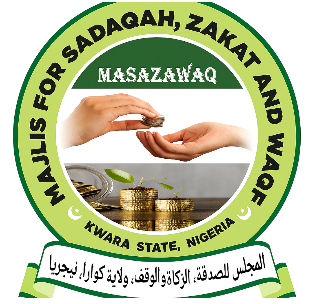What is Zakat
Zakat is one of the five pillars of Islam, serving as both a spiritual practice and a means of charity. It is mandatory almsgiving, requiring individuals to give a set percentage, typically 2.5% of their savings and wealth, annually. Zakat purifies one’s wealth and supports those in need, actively contributing to the betterment of the community.
📖 Allah says:
“Establish prayer and give Zakat, and whatever good you put forward for yourselves – you will find it with Allah. Indeed, Allah of what you do is Seeing.” (Qur’an 2:110)
Exploring Waqf
Waqf refers to a charitable endowment, where an individual donates assets for a specified purpose, often generating ongoing benefits for the community. Unlike Zakat, which is obligatory, Waqf is a voluntary act of giving. Assets placed in Waqf can include land, buildings, or money, and the returns are usually directed towards educational, health, or social welfare projects. This form of charity promotes sustainability and offers long-term support.
📖 Allah says:
“Never will you attain righteousness until you spend [in the way of Allah] from that which you love. And whatever you spend – indeed, Allah is Knowing of it.” (Qur’an 3:92)
The Role of Sadaqah
Sadaqah encompasses all forms of charitable giving, both obligatory and voluntary. Unlike Zakat, Sadaqah is not restricted by a specific percentage or specific timing—it can be given at any time, in any amount, to anyone in need. This flexibility allows people to donate according to their ability and the urgency of needs. Sadaqah can also be expressed through kindness, good deeds, or even a smile.
📖 Allah says:
“The example of those who spend their wealth in the way of Allah is like a seed of grain that sprouts seven ears; in every ear there are a hundred grains. Allah multiplies His reward for whom He wills.” (Qur’an 2:261)
Deciding Which to Give
Choosing between Zakat, Waqf, and Sadaqah depends on your situation and intentions. If you’re looking for a way to fulfill your religious duty while aiding the less fortunate, Zakat is your go-to option. For long-term community impact with your assets, consider establishing a Waqf. If immediate assistance is needed or you simply want to express kindness, Sadaqah is a beautiful choice. Ultimately, each form of giving enriches the lives of both the giver and receiver, enhancing the ethical fabric of society.
Zakat, Waqf, and Sadaqah are all powerful ways of giving, each serving a unique role in strengthening faith and uplifting society. Zakat fulfills an obligation and ensures wealth circulates among the needy. Waqf builds a legacy of continuous reward and sustainable development. Sadaqah keeps generosity alive in daily life, protecting the heart from greed and spreading compassion.
Whichever form you give, what matters most is sincerity and the intention to please Allah.
📖 Allah promises:
“Whatever you spend in charity, He will replace it; and He is the best of providers.” (Qur’an 34:39)
- Giving is never a loss—it is an investment in both this world and the Hereafter.
